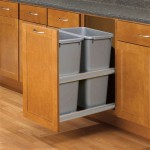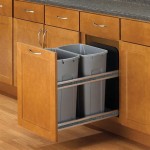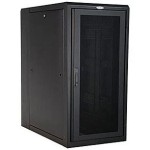Does a Flammable Cabinet Need to Be Grounded?
Flammable cabinets are essential safety equipment in various industries, designed to store and protect combustible materials from ignition sources. While these cabinets are inherently designed to minimize fire hazards, the question of grounding often arises. Does a flammable cabinet need to be grounded? The answer is not straightforward and depends on several factors, including the specific cabinet design, the type of flammable materials stored, and the surrounding environment.
Understanding Grounding and its Importance
Grounding is a crucial safety measure that provides a path for electrical current to flow to the earth in case of an electrical fault. When an appliance or equipment malfunctions, a live wire can come into contact with a metal surface, creating a shock hazard. Grounding connects this metal surface to the earth, diverting the current safely away from users and preventing electrocution.
In the context of flammable cabinets, grounding can serve two primary purposes:
- Preventing Static Discharge: Flammable materials, especially liquids, can generate static electricity through movement or friction. If the cabinet is not grounded, static discharge can ignite the stored materials, leading to a fire.
- Protecting from Electrical Hazards: If the cabinet itself or its electrical components malfunction, grounding can provide a safe path for the current to flow to the earth, preventing shocks and potential ignition of flammable materials.
Grounding Requirements for Flammable Cabinets
The need for grounding a flammable cabinet is determined by various factors, including:
- Cabinet Design and Materials: Cabinets made of conductive materials like steel are more likely to require grounding than those made of non-conductive materials like plastic. The presence of electrical components within the cabinet, such as lighting or ventilation systems, further necessitates grounding.
- Type of Flammable Materials Stored: Highly flammable materials like solvents, oils, and gases pose a greater risk of ignition from static discharge. Cabinets storing these materials often require grounding to minimize static buildup.
- Environmental Factors: The presence of potentially explosive atmospheres, such as in industrial facilities or chemical plants, increases the importance of grounding flammable cabinets. Humidity levels and the presence of dust can also contribute to static buildup.
National and regional electrical codes often provide specific guidance on grounding requirements for flammable cabinets. Consult the relevant codes and standards for your location to determine the appropriate grounding practices.
Grounding Methods for Flammable Cabinets
If grounding is deemed necessary, several methods can be employed:
- Direct Grounding: Connecting the cabinet's metal frame directly to a ground rod driven into the earth. This is the most common and effective method for providing a low-resistance path to ground.
- Grounding Through Electrical System: Connecting the cabinet to a grounded electrical outlet or wiring system. This method requires careful consideration to ensure the electrical system is properly grounded and that the cabinet is appropriately connected to the ground wire.
- Static Dissipative Coatings: Applying a static dissipative coating to the cabinet's exterior can help to prevent static build-up and minimize the risk of ignition.
The choice of grounding method should be based on the specific requirements of the cabinet and its contents, as well as the surrounding environment.

Grounding A Justrite Safety Cabinet

Grounding A Justrite Safety Cabinet

Do Flammable Storage Cabinets Need To Be Grounded

Division Of Research Safety Illinois
Flammable And Combustible Liquids Storage Requirements

Safely Store Flammables Fire Prevention Tips

Bonding And Grounding Koudx Www Com 肯鼎

Expert Tips Why You Should Never Store A Flammable Safety Cabinet On Wooden Pallet Justrite

Flammable Cabinet Storage Guidelines

How To Attach Your Earthing Cable Justrite Flammable Cabinet Youtube








